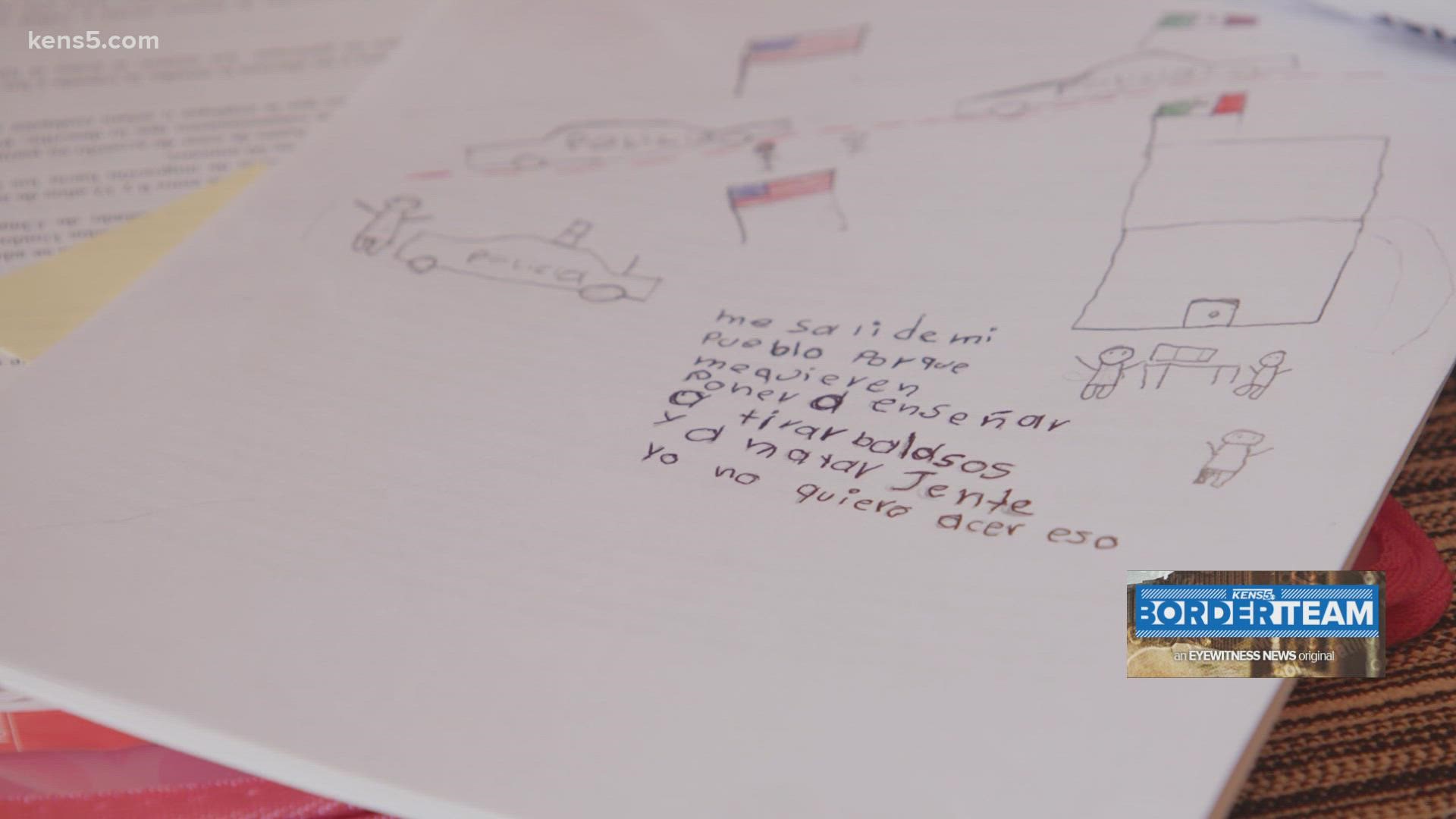EL PASO, Texas — We hear quite a bit from adults who make the dangerous journey to the Texas-Mexico border, but not as much from kids.
Georgina Sanchez, a clinical psychologist working on her doctorate UT El Paso, spent months interviewing children who are migrating. She shared some of the audio recordings of her conversations with KENS 5.
KENS 5 is not naming the children out of their protection and privacy, nor are we providing their age or country of origin.
“Children on the move are not only exposed to danger, but they are dying as well on the route,” Sanchez described. “They are hungry, they are thirsty. They get robbed. They get kidnapped.”
Sanchez said she spent about seven months in 2021 traveling in Mexico to interview children traveling with their parents, staying in migrant shelters.
“They are genuine, they really wanted to say what was happening,” Sanchez said. “They were just willing to say the truth, to tell us what really happened in their country, how the authorities treated them.”
In a recording of Sanchez’s conversation with a little girl, Sanchez is heard asking about the most difficult part of the trip.
“I walked a lot,” the girl is heard answering. “My feet would hurt from so much walking. I would imagine that we were almost there, so I wouldn’t despair.”
“They want people to understand them, to comprehend them,” Sanchez said.
Sanchez said she talked to 76 children between the ages of 8 and 12.
“They talk about justice in such a way that I felt the presence of God there,” she said. “That is why I feel that it was such an honor being with them.”
Another conversation Sanchez shared with KENS 5 was between her and a 12-year-old boy.
“He told me that his cousin was with the coyotes crossing the desert from Ciudad Juarez to El Paso,” Sanchez said.
“The coyote had left him,” the boy told Sanchez during their interview. “He was praying so nothing bad would happen to him. He was praying when the Guadalupana appeared.”
The boy told Sanchez Border Patrol showed up, then his cousin was able to cross.
“I want people to stop and think, they are children,” Sanchez said. “They are children. They have the right to be protected. They have, most of all, the right to be heard and to be understood.”
That’s why Sanchez said she’s talking about them, writing about them and sharing their stories.
“They [children] told me something that broke my heart, it made me very sad. They were ashamed of where they were [from],” Sanchez said.
She described her conversations.
“I was saying, ‘Why are you embarrassed?’” she asked one child. “‘Because I'm from El Salvador,’’’ the child answered. ‘‘‘What do you mean? That doesn't matter?’ ‘Yes, because people tell me that because I'm from El Salvador or from Honduras, or Guatemala, I’m worth less than that, than other children.’”
“To see a child, you should not think about his nationality,” an emotional Sanchez said.
Sanchez is researching children on the move as part of her doctoral studies in Interdisciplinary Health Sciences at UTEP. She’s not alone in her work. She said Dr. Maricarmen Montenegro and Paula Chavez-Santamaria, PhDc, are co-investigators.
She said The Research Program on Migration and Health, Institute for Diversity and Civic Life, and the Henry Luce Foundation financed her research.
Dr. Mark Lusk, from UTEP, is supervising Sanchez’s research. KENS 5 profiled Lusk’s own work with migrants in a story a couple of years ago.

